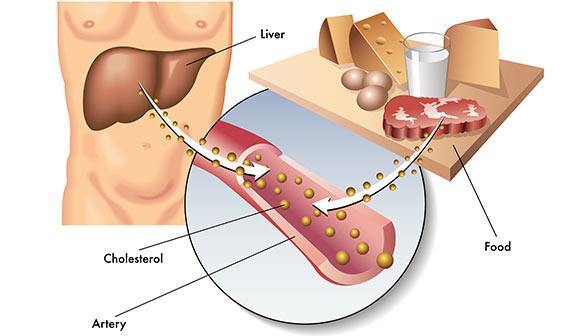There is a cloud of confusion when it comes to cholesterol, many people still throw away their egg yolks! Before you throw away another yolk, there are some very important facts about cholesterol you should know.
Fat and Cholesterol are Good for You – By Dr. Ravnskov
Important Facts About Cholesterol
[box]
- High cholesterol alone is not responsible for heart disease.
- Individuals with low blood cholesterol levels have the same rate of heart disease as those with high blood cholesterol.
- Cholesterol comes from the food we eat and is also produced in the liver.
- Our liver gauges how much cholesterol to produce based on how much we eat. If our diet is cholesterol rich, our liver doesn’t produce much, if we don’t eat much cholesterol, the liver produces more.
- Drugs designed to lower cholesterol do not decrease your risk of heart disease. Many of these drugs in fact pose severe health risks and could decrease your lifespan.
- The popular cholesterol lowering drug known as Statins have been known to stimulate cancer development in rodents. They can also deplete the heart of key nutrients required for optimal cellular function.[/box]
Sources of Cholesterol

HDL vs LDL
Typically thought of as good and bad forms of cholesterol, they are actually not types of cholesterol, rather lipoproteins that transport cholesterol through the bloodstream.
[box]
- HDL stands for high density lipoprotein and LDL stands for low density lipoprotein.
- LDL is considered the “bad cholesterol”, carrying cholesterol to your arteries.
- HDL is considered the “healthy cholesterol”, carrying cholesterol away from the arteries and towards the liver.[/box]
Cholesterol is a waxy fat carried through the bloodstream by lipoproteins (HDL and LDL). When this waxy fat accumulated in the arteries it contributes to plaque buildup and can lead to heart disease.
When Cholesterol Becomes A Problem
Naturally occurring cholesterol is not harmful to our health. It can become harmful when exposed to high heat or certain processing techniques. The heat and processing can damage the cholesterol, posing a health risk when it reaches the arteries.
Regularly eating foods high in damaged cholesterol can contribute to heart disease. Meaning you want higher levels of HDL lipoproteins to usher the damaged cholesterol away from the arteries.
Limiting your intake of damaged cholesterol is the best way to avoid cholesterol related heart disease. To help limit your intake of damaged cholesterol, avoid cooking animal products on a high heat.
Tips To Take Home
[box]
- Eat a diet rich in healthy fats.
- Regularly incorporate a wide variety of nutrients into your diet.
- Limit your intake of animal products cooked at high temperatures and those which are highly processed.[/box]
Big Pharma and Cholesterol
The major problem with cholesterol guidelines is that they are heavily influenced by pharmaceutical companies. These companies earn billions each year through cholesterol-lowering medications.

In 2004, the “safe” level of LDL cholesterol was lowered from 130 to 100. This amendment immediately made about 8 million more Americans eligible candidates for cholesterol-lowering medications.
Before you side with the drug companies, assuming they have your best interests at heart, know that the panel of physicians responsible for the amendment to the “safe” cholesterol guidelines almost all received financial compensation from the drug companies. The National Cholesterol Educational Program is the program responsible for the new guidelines, they also failed to disclose the financial conflict of interest.
It seems that the biggest drug companies are more concerned with profit than with the public’s health. Viewing the American public as customers rather than patients.
4 Herbal Supplement Brands that are Lying to Consumers
Why Doctors are Dropping Un-vaccinated Patients


I just recently stopped my statin medication, working with my doctor I am going for a more holistic approach. Supplementing with natural anti-inflammatories and focusing my efforts on a healthy diet and daily activity.
Statins are the biggest scam! Great article.